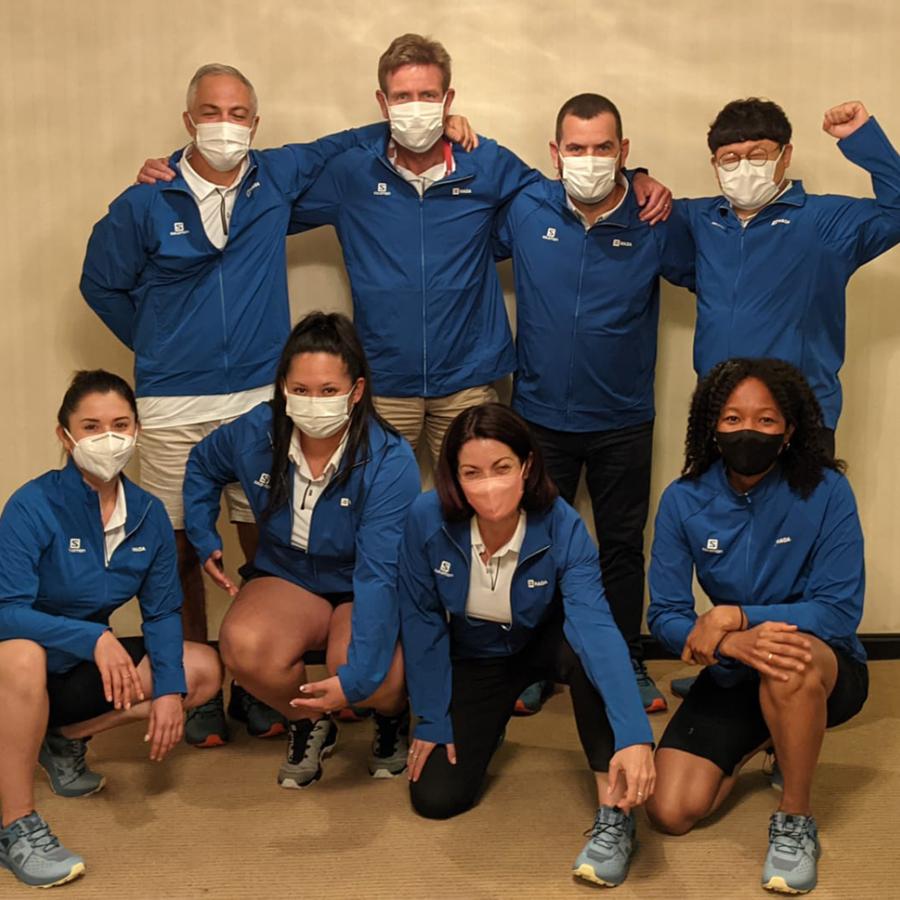Releases
Teamwork is the key for WADA’s Independent Observers at Tokyo 2020 Olympic Games

The Tokyo 2020 Olympic Games is full of teams. Hundreds of national teams, various squads of players for specific team events, individual athletes and their teams of coaches and entourage and even teams of organizers that are busy behind the scenes ensuring the Games run smoothly. And for the members of the World Anti-Doping Agency’s (WADA’s) Independent Observer (IO) team, it is every bit as important that they work together as a cohesive unit in order to be effective in monitoring the anti-doping system in place during the Games.
Since it was first launched at the 2000 Olympic Games in Sydney, Australia, WADA's IO Program has sought to enhance athlete and public confidence in the anti-doping programs being carried out at major sporting events by monitoring and reporting on all phases of the doping control and results management processes. The IO Program, which complements WADA’s compliance monitoring of Major Event Organizations (MEOs) launched a couple of years ago, monitors the quality, effectiveness, and reliability of anti-doping programs during major events such as the Olympic and Paralympic Games and other international, multisport events. As far as the Tokyo 2020 Olympic Games are concerned, anti-doping activities are being implemented by the International Testing Agency (ITA) on behalf of the relevant MEO, the International Olympic Committee.
Monitoring this complex and multi-faceted process requires a dedicated group of people with a diverse range of skills. Of course, every team needs a captain and the Chair of WADA’s IO Program at the Olympics is the vastly experienced Dr. Francesca Rossi, who has been working in the anti-doping field for the past 24 years.
Dr. Rossi said: “I am honored to be leading this team of professional anti-doping experts who are all driven by a sense of fair play and the desire to make sure the athletes can compete on a level playing field. Like any other team, having the right balance is so important. Our IO team has experts in the fields of laboratories, Therapeutic Use Exemptions, science, the Athlete Biological Passport, testing, legal affairs and so on. It is a very effective mix of disciplines.”
The IO program is being conducted in an impartial way with the team working closely alongside the ITA’s doping control team and the local organizing committee. The work started well in advance of Tokyo 2020 with a review of the risk assessment and test distribution plan along with other documents to ensure the testing program was proportionate.
Each day during the Games, the members of the team go to various event venues to observe how the system is being implemented, from the process of notification – including the work of chaperones – how the doping control officers are working in collecting the samples, how those samples are stored and delivered for analysis, how the laboratory is carrying out the analysis process, and finally, the results management process. The group then meet in the evening to go through their daily reports and flag any issues or potential improvement points.
Every morning, the Chair and/or the Vice-Chair of the IO team meet with representatives of the ITA, IOC and the local organizers to report these observations and, where possible, ensure that ongoing, real-time improvements can be made.
Dr. Rossi continued: “We enjoy a very good working relationship with the ITA. They have been really open and transparent with us, even highlighting any improvements that they feel can be made. Every day, we exchange information with them – it is not a one-way street. It is a real collaboration with the ultimate goal of maintaining the integrity of the overall system. As the days go on, the running of the program is becoming smoother as all the little creases faced in the first days are being ironed out. Of course, in anti-doping, every day is a new day and there are always new challenges just around the corner.
“From our side, our role is to ensure that the process being implemented is compliant with the rules and that there is consistency across all sports and venues so that athletes all have the same experience. If there are things we identify that can easily be fixed, we seek to make those changes immediately. Otherwise, we look to improve over time through the implementation of the recommendations that we highlight in our post-event report.”
Independent Observer Team – Tokyo 2020 Olympic Games
- Dr. Francesca Rossi (Italy), Director of Testing, National Anti-Doping Agency of France (Chair);
- George Tsamis (Greece), Senior Manager, Testing, WADA (Vice-Chair);
- Dr. Osquel Barroso (Cuba), Senior Associate Director, Laboratories, WADA;
- Gina Gill Herrera (Colombia), Manager, Athlete Biological Passport and TUEs, National Anti-Doping Agency of Colombia;
- Kenny Lee (Republic of Korea), Manager, Asia and Oceania Office, WADA;
- Greg McKenna (UK), Head of Biathlon Integrity Unit, International Biathlon Union;
- Aya Nakitanda (Uganda), Medical Doctor and President, National Anti-Doping Agency of Uganda (former athlete); and
- Marissa Sunio (USA), Senior Manager, Legal Affairs, WADA.
WADA will run a similar IO program during the Tokyo 2020 Paralympic Games, which will run from 24 August to 5 September 2021.
For more information on the evolution of the IO Program, see WADA’s most recent Spotlight.

